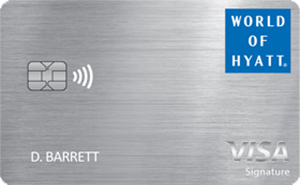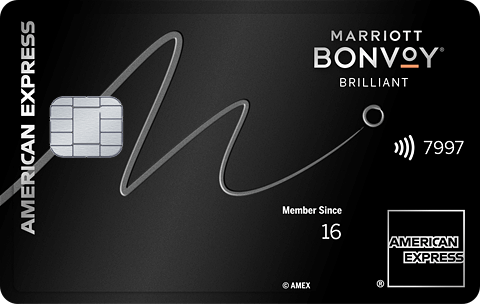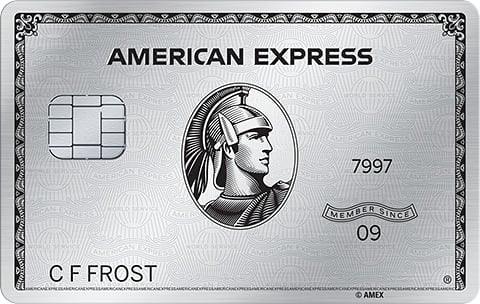The 5 Best Credit Cards with Hotel Status
Holding one of these credit cards automatically gets you elite status at certain hotel chains.

Many or all of the products on this page are from partners who compensate us when you click to or take an action on their website, but this does not influence our evaluations or ratings. Our opinions are our own.
Elite status in a hotel loyalty program can get you room upgrades, free breakfast, late checkout and other on-property perks. Normally, you earn elite status by racking up lots of stays at participating hotels. But there is an easier way. Certain credit cards come with automatic status in hotel programs.
Many travelers sign up for a hotel card just to get card benefits like free annual night certificates and statement credits. But credit cards with free elite status at hotels can pile on even more perks that, in many cases, are worth more than the card’s annual fee.
Here are five cards that come with hotel elite status.

By signing up, you will receive newsletters and promotional content and agree to our Terms of Use and acknowledge the data practices in our Privacy Policy. You may unsubscribe at any time.
1. World of Hyatt Credit Card
Status: Complimentary Discoverist.
Annual fee: $95.
What you need to know: Though Discoverist is the lowest tier of World of Hyatt status, the World of Hyatt Credit Card delivers on the number of perks that come with its slim annual fee. To reach Discoverist status, members must typically stay 10 nights or earn 25,000 base points in the year. The card also comes with five qualifying nights each year, which can be helpful if you're chasing Explorist or Globalist status.
That means the card comes with automatic, entry-level status while putting you on the path to higher elite status with Hyatt. Benefits of the card include an annual free night certificate at Category 1-4 properties, while benefits of Discoverist status include waived resort fees at participating properties, bonus points, space-available room upgrades and bottled water.
2. Marriott Bonvoy Brilliant® American Express® Card
Status: Complimentary Marriott Bonvoy Platinum Elite.
Annual fee: $650 (see rates and fees).
What you need to know: To earn Platinum status in the Marriott Bonvoy program, you normally have to stay 50 nights during a calendar year. But if you have the Marriott Bonvoy Brilliant® American Express® Card, you automatically qualify for Platinum status, which gets you space-available upgrades to select suites, faster wireless internet during stays, guaranteed 4 p.m. late checkout and a welcome gift with complimentary breakfast as an option. Though this is not the top Marriott Bonvoy elite status, it is the easiest way to secure Marriott elite status with solid perks.
Other perks that come with the sizable annual fee are Priority Pass Select membership (enrollment required), a Free Award Night worth up to 85,000 points and up to $300 of statement credits (up to $25 each month) for eligible purchases at restaurants worldwide. Terms apply.
» Learn more: The best ways to rack up Marriott Bonvoy points
3. IHG One Rewards Premier Credit Card
Status: Complimentary Platinum Elite.
Annual fee: $99.
What you need to know: Platinum is a middle tier in the IHG One Rewards program. The card also comes with an annual free night and the ability to get a free reward night when redeeming points for three nights (or more).
The IHG One Rewards Premier Credit Card has such a low annual fee that Platinum status (including space-available upgrades and bonus points) is just icing on the cake.
» Learn more: IHG elite status tiers
4. Hilton Honors American Express Aspire Card
Status: Complimentary Hilton Honors Diamond.
Annual fee: $550 (see rates and fees).
What you need to know: The Hilton Honors American Express Aspire Card gets you Hilton Honors’ Diamond status, which comes packed with perks. Typically, Diamond status requires at least 50 hotel nights, 25 stays or $11,500 in eligible Hilton spending. But this card comes with automatic Diamond status, which means you can immediately start enjoying benefits like access to hotel executive lounges, continental breakfast (or a food and beverage credit in the U.S.), bonus points and space-available room upgrades.
Other perks of the card include a complimentary free night award that can be used at almost any Hilton property worldwide, Priority Pass Select membership (enrollment required), a $200 flight credit (enrollment required) and a $400 Hilton resort credit each year. Add that up and the value of just those benefits alone exceeds the annual fee.
Terms apply.
5. American Express Platinum Card®
Status: Hilton Honors Gold, Marriott Bonvoy Gold Elite and Leaders Club Sterling.
Annual fee: $895 (see rates and fees).
What you need to know: If you can’t decide which program you want to commit to, the American Express Platinum Card® is a definite winner. Though its annual fee is hefty, so too are the benefits and automatic elite status with not just one, but three hotel brands. Cardholders enjoy two mid-tier elite statuses with Hilton Honors Gold and Marriott Bonvoy Gold Elite, as well as top-tier Sterling status with Leading Hotels of the World's Leaders Club program (enrollment required). These status come with perks like space-available upgrades and bonus points.
The card can yield benefits worth more than the annual fee. For example, a $200 airline credit (enrollment required)*, $200 worth of Uber credits (rides or UberEats orders in the U.S. up to $15 each month and $35 in December), two Saks Fifth Avenue credits up to $50 each (enrollment required), Priority Pass Select membership (enrollment required), Centurion lounge access and more can easily justify the card's sky-high annual fee. That’s not to mention the bonuses that come with the hotel elite status options.
Terms apply.
Other credit cards with free elite status at hotels
Besides the five standout cards above, a number of other credit cards come with free hotel elite status, usually at a low or middle tier.
- The Choice Privileges® Mastercard® comes with free Gold status, the lowest elite tier in the loyalty program for Choice Hotels.
- The Best Western Rewards® Premium Visa Signature® Card comes with free Platinum status, which is a mid-tier status in Best Western Rewards.
- The Wyndham Rewards® Earner℠ Business Credit Card, which provides automatic Diamond status (the program’s highest), is a great option for regulars at Wyndham Rewards properties. Diamond members can also gift Gold status to someone else, plus they get bonus points, suite upgrades and welcome amenities on stays.
The bottom line
The right credit card can be your fastest route to elite status in your preferred hotel loyalty program. And one of these cards can be especially handy when staying at a hotel brand that you do not regularly frequent, since it may provide your only path to status. If you can take full advantage of status benefits and other card perks, you could get value well exceeding the card’s annual fee.
To view rates and fees of the American Express Platinum Card®, see this page.
All information about the Hilton Honors American Express Aspire Card has been collected independently by NerdWallet. The Hilton Honors American Express Aspire Card is no longer available through NerdWallet.
To view rates and fees of the Marriott Bonvoy Brilliant® American Express® Card, see this page.
*More from American Express
American Express relies on airlines to submit the correct information on airline transactions to identify incidental fee purchases. If you do not see a credit for a qualifying incidental purchase on your eligible Card after 8 weeks, simply call the number on the back of your Card. Qualifying airlines are subject to change. See terms & conditions for more details
How to maximize your rewards
You want a travel credit card that prioritizes what’s important to you. Here are some of the best travel credit cards of 2026:
- Flexibility, point transfers and a large bonus: Chase Sapphire Preferred® Card
- No annual fee: Wells Fargo Autograph® Card
- Flat-rate travel rewards: Capital One Venture Rewards Credit Card
- Bonus travel rewards and high-end perks: Chase Sapphire Reserve®
- Luxury perks: American Express Platinum Card®
- Business travelers: Ink Business Preferred® Credit Card
Article sources
NerdWallet writers are subject matter authorities who use primary,
trustworthy sources to inform their work, including peer-reviewed
studies, government websites, academic research and interviews with
industry experts. All content is fact-checked for accuracy, timeliness
and relevance. You can learn more about NerdWallet's high
standards for journalism by reading our
editorial guidelines.
Limited Time Only: Earn $1,000 Toward Travel!
Capital One Venture Rewards Credit Card 
Travel

For a limited time, the
Capital One Venture Rewards Credit Card is offering new cardholders an especially rich bonus: Enjoy $250 to use on Capital One Travel in your first cardholder year, plus earn 75,000 bonus miles once you spend $4,000 on purchases within the first 3 months from account opening - that’s equal to $1,000 in travel!
More like this
Related articles










